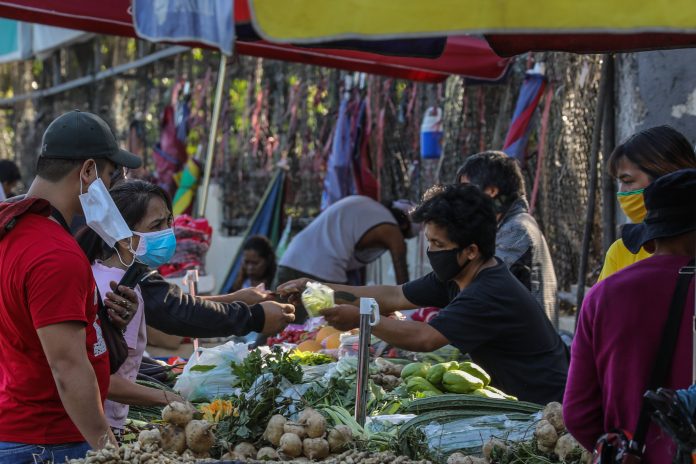“There are things a president can do that a secretary can’t,” Bongbong Marcos justifies his concurrency as agriculture chief. “Agriculture problems are so difficult that it will take a president to change and turn it around.”
Well said. But he doesn’t expound on averting food shortage starting Christmas-New Year. He even gags department officials from speaking out. “You are hereby directed to not accept interviews from the media unless given clearance by the Office of the Secretary,” his Senior Undersecretary Domingo Panganiban directed 75 subordinate bureaus, agencies, councils and regional units. That silences even the department’s newly promoted spokeswoman.
Food producers are in disarray. Fuel prices continue to soar. With diesel accounting for half of poultry and fishermen’s expenses and a fifth of farmers’, not yet including transporting to market, many shift to unrelated livelihoods.
Nitrogen shortage from Ukraine war has quadrupled fertilizer rates. With planters using less, harvests dwindle of corn, rice, sugarcane, fruits and vegetables.
Intertwined with petroleum and fertilizer imports is the peso decline versus foreign currencies. Piggery, poultry, cattle, farm, fishing supplies are pricier than ever.
Weather and natural disasters further take their toll. Three typhoons in two months ravaged Luzon farms and fishponds. Last weekend’s superstorm spurred floods and mudslides countrywide, further setting back food production and transport.
Before that, extreme humidity and corn scarcity stunted chickens. Thus, last June’s shortage in restaurant chains, United Broiler Raisers Association head Bong Inciong reminds. Expect recurrence in 2023 as oceanographers forecast La Niña for a third year. Expect super typhoons too this November-December, the months when Sendong struck in 2011, Pablo in 2012, Yolanda in 2013, Rolly and Ulysses in 2020, and Odette in 2021.
Three dozen strong earthquakes since July shook the Cordilleras, Ilocos, Zambales, Batangas, Surigao, Davao and Tawi-Tawi. Cattle and livestock raising were upturned. Volcanic tremors in Bulusan, Mayon and Taal force evacuations from lake fish pens.
Food is unaffordable. Thirty-four percent of families, 8.7 million in all, rate themselves food poor in a Social Weather Station survey. Forty-nine percent, or 12.6 million families, say they’re simply poor. No Yuletide merriment for them.
The previous admin’s solution to food inflation was unbridled imports. That pleased consumers only momentarily. Domestic producers collapsed from competition with cheap but unsafe fish, chicken, fruits and veggies from China. Already suffering Asian Swine Fever, many piggeries closed down from cheap pork imports.
A president certainly can do what secretaries can’t but Marcos might do better if he stays only as president.
He can stand back and order the environment and interior departments to replant mangrove. Every mangrove hectare yields per year 800 kilos of fish, crab, shells, birds and eggs, plus edible fern and high value sea urchin — free food and cash for the poor. The Philippines has lost half of its mangrove forest, with only 250,000 hectares left. Imagine how much more food reforestation can yield.
Examples await replicating. NGOs, conglomerates, and governors and mayors have done it in Bulacan, Batangas, Quezon, Sorsogon, Cebu and Silay City, among others.
Marcos’ preference to micromanage agriculture requires focus. He will have to report to the department more often than only twice on July 4 and 11. Teleconferencing can only do so much. Daily face-to-face co-working will familiarize him with issues, operations and bureaucrats.
Like, he might discover who’s messing up marketing services and Kadiwa rolling stores these past six years. Producers remain unlinked to wholesalers. Growers of red onion in Mindoro, watermelon in Laguna, and vegetables in Benguet have had to dump harvest recently for lack of transport and buyers.
Panganiban, long-retired from the department but rehired in August at age 83, may not know that marketing assistance is now required by law. He blamed not his subs but garlic farmers in Itbayat, Batanes for planting garlic last summer supposedly without thinking of marketing. Itbayat has been producing garlic for half a century. But traders backed out this year because smugglers flooded nearby Ilocos and Cagayan with Chinese garlic.
Fighting agri-smuggling demands revival of an inter-department task force, as presidents Gloria Arroyo and Noynoy Aquino had. Consisting of agriculture, trade, justice, Customs and BIR bosses, the TF reported monthly to the President. It had a Malacañang core of police generals and Navy-Coast Guard commodores interdicting contraband.
Agri-smuggling dropped 25 and 31 percent respectively under Arroyo and Aquino, former TF member and agriculture and trade undersecretary Ernesto Ordoñez says.
Exposed in GOTCHA last month was the sneak-out of confiscated onions smuggled from China. Customs assessed six cargo containers at PhP18 million. Retailed in Davao and Surigao at PhP700 a kilo, the value ballooned to PhP100.6 million. Customs commissioner Yogi Ruiz ordered his intelligence deputy to investigate and recommend suspension of the port collector if necessary. Does Marcos know that no action has yet been taken?
Vegetable smuggling goes on. Videos and photos of contraband, with location-date-time geo-stamped, circulate online. Dozens of containers have been trafficked into Manila, Subic, Batangas and Quezon, part of 1,700 total. Senator Raffy Tulfo has identified the smuggling king as Michael Yang, likely an alias. That contrabandist is even threatening to kill Benguet planters who exposed him.
Jarius Bondoc is an award-winning Filipino journalist and author based in Manila. He writes opinion pieces for The Philippine Star and Pilipino Star Ngayon and hosts a radio program on DWIZ 882 every Saturday. Catch Sapol radio show, Saturdays, 8 to 10 a.m., DWIZ (882-AM).
The views expressed in this article are the opinions of the author and do not necessarily reflect the editorial stance of LiCAS.news.









